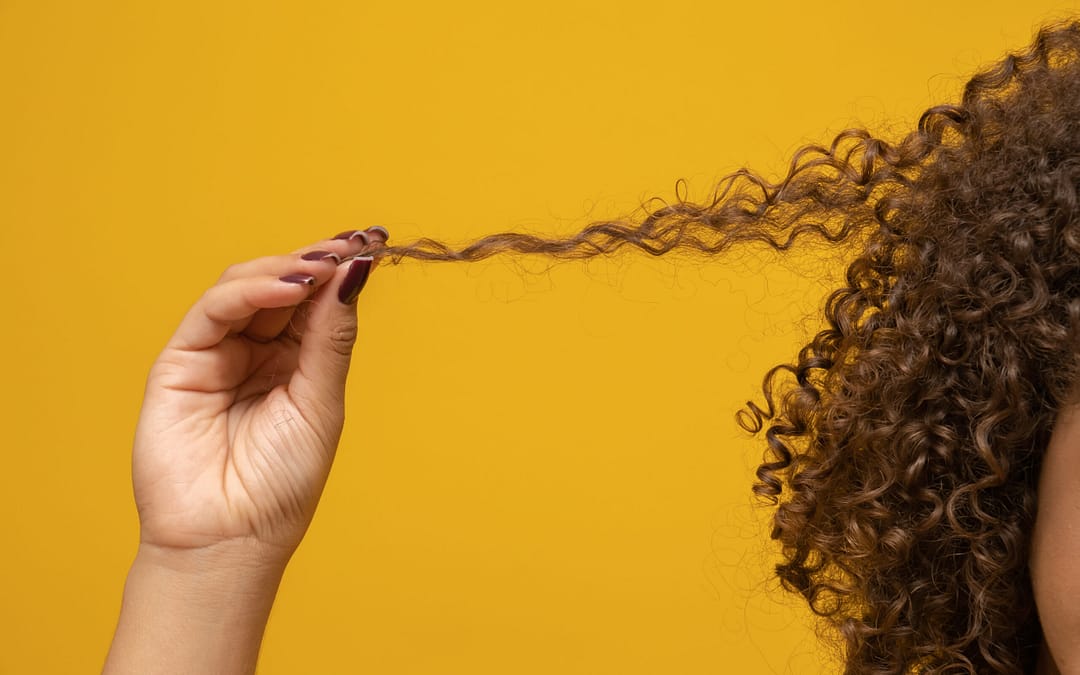Almost half of black women experience some form of hair loss. However, the reasons for this are slightly shrouded in mystery with many healthcare professionals unfamiliar with black hairstyling practices, leaving women to sort through unhelpful or even harmful advice on their own.
Here, Consultant Trichologist, Eva Proudman FIT IAT, from UKhairconsultants.com and a fellow of the Institute of Trichologists talks through some of the causes and treatment options as well as how to stay ahead of any early thinning issues. Eva has successfully treated numerous men and women suffering with hair loss and is the resident trichologist on “The Hair Loss Clinic”, which can currently be streamed on Discovery plus.
What the difference between the make-up of afro hair to Caucasian hair?
Afro hair coils 12 times more than Caucasian hair causing it to have pressure points on the cuticle, (the outer protective layer of the hair) at each bend, the cuticle is slightly flattened by the coiling and makes the hair more fragile and susceptible to breakage. The hair follicle in Caucasian hair is round whereas it is elliptical in Afro hair leading to the change in the overall shape of the hair. Additionally, Afro scalps tend to be slightly more oily, however by contrast the hair can dehydrate very quickly adding to the fragility of it.
What can be done to help prevent this?
Try to wear the hair out or go natural, rather than using chemical relaxants or added hair solutions. To help the natural hair become more manageable, use hydrating hair care products with ingredients such as glycerine to add moisture. Weaves, braids and locks often cause loss to the margins of the hair due to traction, this can be avoided by not using these types of products. If you do notice this happening, don’t panic, in some instances the thinning can recover once practices are stopped.
Are you seeing black women embracing their natural curls rather than chemically straightening, braiding and wearing wigs?
Over the past 2 years I have seen a lot more black women embracing their natural hair which is wonderful! To make the hair care regime more manageable, rather than using oils on the hair and scalp, try using a good hydrating shampoo and conditioner. Steam is also another good way to hydrate the hair; the difference in hair texture is amazing when hydration rather than oiling is used.
Are there particular treatments and styling techniques that can make black hair more susceptible to breakage?
Afro hair needs hydration more than anything else, so using products that bring moisture into the hair is advisable, steaming is also good for the hair. However, chemical relaxing of the hair, wearing tight braids, lock weaves and hair extensions, can all cause breakage and damage and in some cases lead to permanent hair loss.
When treating black hair loss are there any particular considerations and differences to treatments for Caucasian hair?
In clinic we see the same conditions in all hair types. However, with afro hair there is an additional condition called Central Centrifugal Cicatricial Alopecia, (CCCA), which can start as a patch to the back of the head and spreads outwards. It is a scarring condition that can have many causes, some relating to chemical relaxers; unfortunately, once the hair has been lost we cannot get it back, but there are prescribed treatments and changes in hair care that can slow and stop further loss to this condition.
Eva has successfully treated numerous men and women suffering from hair loss and is the resident trichologist on “The Hair Loss Clinic”, which can currently be streamed on Discovery Plus.
“I encourage anyone who is concerned about hair loss and alopecia to check out the information here, where I talk through specific variances of alopecia, causes, and potential treatment options.
As always, if you have any general concerns then please do pop me a question here: www.ukhairconsultants.com/ask-about-symptoms-eva-proudman. I’m always here for you and committed to helping people of all ages with hair and scalp health concerns.”
Or get in touch here!

